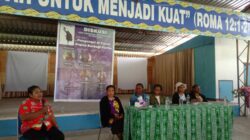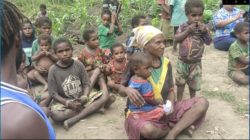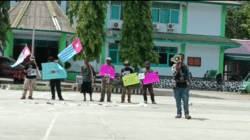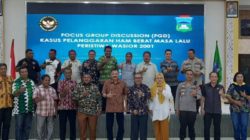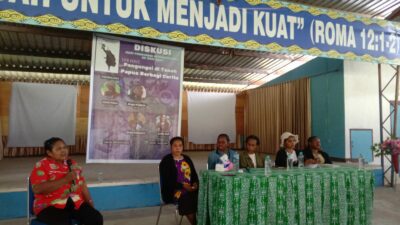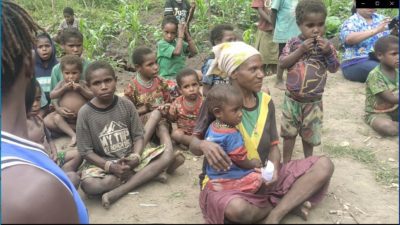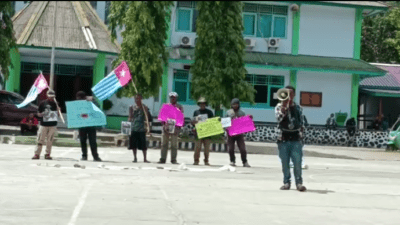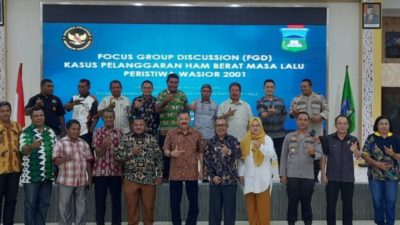
Jakarta, Jubi – Indonesia’s Government has come under fire for its slow response to a severe measles outbreak in the province of Papua that has claimed the lives of dozens of children.
The alarming number of deaths in Asmat has also led to outrage in local Indonesian media, as ABC news reported.
But Jakarta defended its response and said the remote area was difficult to access quickly.
“Yes we have very limited means and staff but this doesn’t mean we aren’t trying very hard,” Agats health department spokesman Steven Langi told Al Jazeera.
“What we need is not just to be criticised, but real help. Those who criticise us I want to invite to work here.”
Indonesia’s Government announced it was setting up a taskforce in Papua to help contain the outbreak and the Indonesian military said it was also sending more medicine and doctors to the province.
Scramble to attend Papua measles outbreak
Indonesian health teams are scrambling to attend to the deadly measles outbreak in Asmat district of Papua province, as reported by RNZI (29/1).
Since reports of the extent of outbreak filtered out of Papua earlier this month, Indonesia’s government has moved quickly to attend to the situation, but is copping criticism for neglecting the health of Papuans over many years.
Papua’s police commander, Boy Rafli Amar last week said the number affected by malnutrition had surpassed 10,000, which was exacerbating the measles problem.
An integrated health team to respond to the crisis has been dispatched from the Papua Province Health Office, Indonesian National Army, and the Ministry of Health.
The epidemic is being attributed by health officials to food shortage, a poor sanitary environment, and a lack of medical personnel and facilities in Asmat.
Jakarta responsible
Despite Papua region’s abundant resources, which provide significant revenue for the Indonesian state, Papua continues to lag in human development outcomes.
Across the whole Indonesian republic, the highest poverty rates, in relative terms, are all in its far east provinces of Papua, West Papua and Maluku, according to Jakarta’s Statistics Agency.
The health situation is of particular concern. Papua has the lowest life expectancy in Indonesia and the highest infant, child and maternal mortality rates. Diseases such as malaria, leprosy and malnutrition have strong footholds in in Papua, as does HIV/AIDS.
Although since coming to power in late 2014, President Joko Widodo promised to bring greater economic and social development to Papua, as well as improved health care, the welfare of Papuans appears to have deteriorated.
In the past couple of years, several reported outbreaks of endemic diseases in various parts of Papua have killed hundreds of people.
The government still significantly restricts access to Papua for international humanitarian and health NGOs who could help bolster public health services.
The United Nations special rapporteur on the right to health, Dainius Pūras, reported after visiting last year that he was “concerned about the health status of ethnic Papuans” and called for greater health investment.(abc.net.au/RNZI/Zely)



